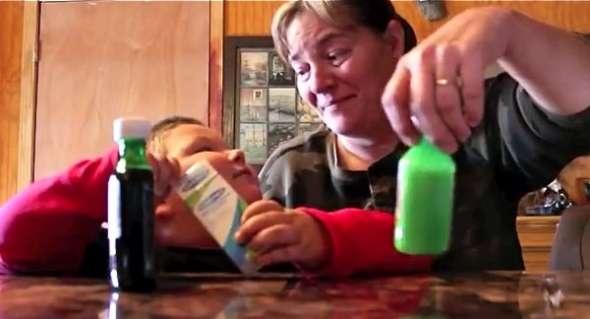Three years after the BP disaster, an urgent call for feds to address health effects

Gulf Coast advocates representing environmental, fishing, faith and other groups throughout the region have written a letter to a host of federal agencies documenting ongoing concerns about human health impacts from the disaster that began unfolding three years ago this month off the Louisiana coast.
The letter, which was shared with the public today by the Louisiana Environmental Action Network (LEAN), was sent to the Environmental Protection Agency, the Occupational Safety and Health Administration, the Centers for Disease Control and Prevention, the National Institute for Occupational Safety and Health, the Department of Health and Human Services, and the National Academy of Sciences.
Scroll below to listen or read along with this article.
"As Earth Day passes and we remember the events of the BP Oil Spill three years ago, we are reminded that things have not been made right here along the Gulf Coast," LEAN said in a statement about the letter. "There are many individuals who continue to suffer severe health impacts from the BP Oil Spill."As Facing South documented in our 2011 investigation, "Poisoned in the Gulf," cleanup workers and other Gulf Coast residents reported a range of debilitating health problems associated with exposure to toxic chemicals in crude oil and dispersants, including respiratory, gastrointestinal, nervous system, and skin disorders.
Here is the full text of the letter, followed by the list of signers. If you would like to add your name, email contact@leanweb.org.
* * *
Dear EPA, OSHA, CDC, NIOSH, HHS, NAS,
Three years ago, eleven men were killed when the Deepwater Horizon exploded in the Gulf of Mexico. This tragic human toll was the beginning of a public health disaster that continues to unfold in a diverse population including: clean-up workers, coastal residents and Gulf Coast tourists. After three years, we find these statements remain to be true:
- The Deepwater Horizon explosion and subsequent Oil Spill led to severe health impacts for a significant number of individuals, thus impacting the resilience of families and communities.
- The response and clean-up of the Deepwater Horizon Oil Spill was grossly inadequate and insufficient in its protection of human health for first responders, clean-up workers and the general population along coastal areas of the northern Gulf of Mexico.
- There is no sufficient method by which individuals whose health has been impacted by events related to the Deepwater Horizon Oil Spill can be effectively identified, diagnosed and treated.
- The extensive research and monitoring of impacted populations does not address the immediate medical needs of these individuals and does nothing to alleviate their suffering.
As the highest authorities charged with the protection of the citizens of this country, we ask:
- The full extent of possible health impacts from the hazardous materials, including crude oil and dispersants (Corexit 9500, etc.), related to the Oil Spill be acknowledged and communicated adequately to all clean-up workers, tourists and individuals along the Gulf Coast.
- Sufficient resources and support be made available to the medical community throughout the Gulf Coast to build the knowledge and infrastructure necessary to identify, diagnose, and care for the individuals in this region who have been made ill from their exposure to oil, dispersants and other chemicals related to the Deepwater Horizon disaster.
- Health care that specifically and adequately addresses chemical exposure and health impacts related to the Oil Spill be made available immediately to impacted individuals, at no expense to them.
The innocent people affected by this disaster deserve to be taken care of. As the ongoing settlement works to address the economic damages caused by this disaster, it is unacceptable that individuals experiencing health impacts have been left to fend for themselves. Having already gone unaddressed for three years, it is clear that these victims will go untreated without strong and comprehensive action by you, our government. We look forward to the relief you can bring to those in need of your help and the critical infrastructure you can build that will undoubtedly assist countless other vulnerable populations across the Gulf Coast in the future.
Sincerely,
Marylee Orr
Louisiana Environmental Action Network (LEAN)
Wilma Subra
LEAN / Subra Co.
Kindra Arnesen
Mother, wife of fisherman, coastal resident
George Barisich
United Commercial Fisherman's Association
Charlotte Cherry
Galveston Baykeeper
Jorey Danos
Oil Spill clean-up worker
Shanna Devine
Government Accountability Project
Meredith Dowling
SouthWings
Tara Escudero
Better Future Project
Cherri Foytlin
The Mother's Project - Gulf Coast Mothers for Sustainability
Denise Galatas
Southern Mutual Help Association, Inc.
Gulf Coast Fund for Community Renewal and Ecological health
Steve Kolian
EcoRigs Nonprofit Organization
Drew Landry
Musician, activist
Bob Lindsey
San Antonio Bay Waterkeeper
Louisiana Interchurch Conference
Jordan Macha
Sierra Club
Haywood Martin
Sierra Club Delta Chapter
Paul Orr
Lower Mississippi Riverkeeper
Juan Parras
T.E.J.A.S.
Kristina Peterson
First Presbyterian Church, Bayou Blue
Scott Porter
EcoRigs Nonprofit Organization
Michael R. Robichaux, M.D.
Physician
Brenda Dar-Dar Robichaux
former Principal Chief of United Houma Nation
Anne Rolfes
Louisiana Bucket Brigade
Cynthia Sarthou
Gulf Restoration Network
Bonny L. Schumaker, Ph D.
On Wings of Care
Grace M. Scire
Boat People - SOS
Social Justice Team of First Unitarian Universalist Church of New Orleans
Dean Wilson
Atchafalaya Basinkeeper
Diane Wilson
Calhoun County Resource Watch
Tags
Sue Sturgis
Sue is the former editorial director of Facing South and the Institute for Southern Studies.
